Related Research Articles

John Bardeen was an American physicist and electrical engineer. He is the only person to be awarded the Nobel Prize in Physics twice: first in 1956 with William Shockley and Walter Brattain for the invention of the transistor; and again in 1972 with Leon N. Cooper and John Robert Schrieffer for a fundamental theory of conventional superconductivity known as the BCS theory.
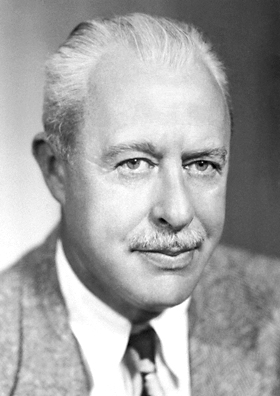
Walter Houser Brattain was an American physicist at Bell Labs who, along with fellow scientists John Bardeen and William Shockley, invented the point-contact transistor in December 1947. They shared the 1956 Nobel Prize in Physics for their invention. Brattain devoted much of his life to research on surface states.

Leon N. Cooper is an American physicist and Nobel Prize laureate who, with John Bardeen and John Robert Schrieffer, developed the BCS theory of superconductivity. His name is also associated with the Cooper pair and the BCM theory of synaptic plasticity.
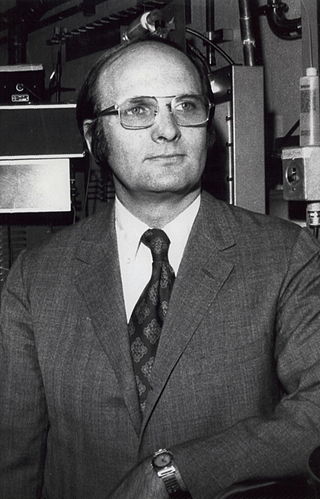
John Robert Schrieffer was an American physicist who, with John Bardeen and Leon Cooper, was a recipient of the 1972 Nobel Prize in Physics for developing the BCS theory, the first successful quantum theory of superconductivity.

Brian David Josephson is a British theoretical physicist and professor emeritus of physics at the University of Cambridge. Best known for his pioneering work on superconductivity and quantum tunnelling, he was awarded the Nobel Prize in Physics in 1973 for his prediction of the Josephson effect, made in 1962 when he was a 22-year-old PhD student at Cambridge University. Josephson is the first Welshman to have won a Nobel Prize in Physics. He shared the prize with physicists Leo Esaki and Ivar Giaever, who jointly received half the award for their own work on quantum tunnelling.
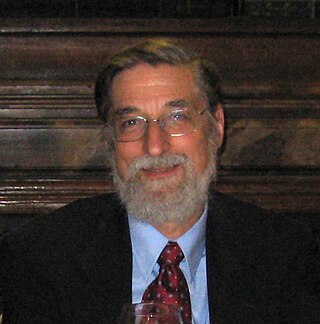
Bertrand I. Halperin is an American physicist, former holder of the Hollis Chair of Mathematicks and Natural Philosophy at the physics department of Harvard University.

James Maxwell Bardeen was an American physicist, well known for his work in general relativity, particularly his role in formulating the laws of black hole mechanics. He also discovered the Bardeen vacuum, an exact solution of the Einstein field equation.

Chad Alexander Mirkin is an American chemist. He is the George B. Rathmann professor of chemistry, professor of medicine, professor of materials science and engineering, professor of biomedical engineering, and professor of chemical and biological engineering, and director of the International Institute for Nanotechnology and Center for Nanofabrication and Molecular Self-Assembly at Northwestern University.

David R. Nelson is an American physicist, and Arthur K. Solomon Professor of Biophysics, at Harvard University.
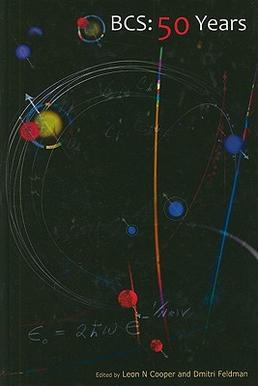
BCS: 50 Years is a review volume on the topic of superconductivity edited by Leon Cooper, a 1972 Nobel Laureate in Physics, and Dmitri Feldman of Brown University, first published in 2010.
Bryna Rebekah Kra is an American mathematician and Sarah Rebecca Roland Professor at Northwestern University who is on the board of trustees of the American Mathematical Society and was elected the president of the American Mathematical Society in 2021. As a member of the American Academy of Arts and Sciences and the National Academy of Sciences, Kra has made significant contributions to the structure theory of characteristic factors for multiple ergodic averages. Her academic work centered on dynamical systems and ergodic theory, and uses dynamical methods to address problems in number theory and combinatorics.
The William I. Fine Theoretical Physics Institute is a research institute in the University of Minnesota College of Science and Engineering. FTPI was largely the work of physics Professor Emeritus, Stephen Gasiorowicz and university alumnus and Twin Cities real-estate developer William I. Fine. The institute officially came into existence in January 1987. FTPI faculty consists of six permanent members: Andrey V. Chubukov, Alex Kamenev, Keith Olive, Maxim Pospelov, Mikhail Shifman, and Boris Shklovskii. The institute has on Oversight Committee consisting of ten members. The Oversight Committee is the board of directors that make decisions concerning the staffing and budgeting of the institute.
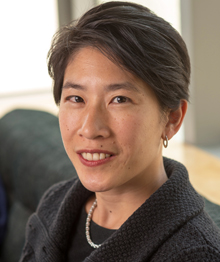
Teri W. Odom is an American chemist and materials scientist. She is the chair of the chemistry department, the Joan Husting Madden and William H. Madden, Jr. Professor of Chemistry, and a professor of materials science and engineering at Northwestern University. She is affiliated with the university's International Institute for Nanotechnology, Chemistry of Life Processes Institute, Northwestern Initiative for Manufacturing Science and Innovation, Interdisciplinary Biological Sciences Graduate Program, and department of applied physics.
Andrey V. Chubukov is a theoretical physicist, at the William I Fine Theoretical Physics Institute, University of Minnesota, specializing in condensed matter. His speciality is physics of strongly correlated electron systems. Chubukov earned his M.Sci. degree in theoretical physics in 1982 and a Ph.D. in 1985 from Moscow State University.
John R. Tucker was an American physicist who made several contributions to the fields of electronics, physics and microwave theory, known for generalizing the microwave mixer theory and presenting the body of work, known as the "Tucker theory", and for his fundamental theoretical contributions which resulted into various advancements in experimental Submillimeter astronomy. He is also credited with laying down some of the technological foundations for making practical Quantum computing possible.

Steven Allan Kivelson is an American theoretical physicist known for several major contributions to condensed matter physics. He is currently the Prabhu Goel Family Professor at Stanford University. Before joining Stanford in 2004, he was a professor of physics at the University of California at Los Angeles. He is the son of Margaret Kivelson, an emeritus professor of earth and space sciences at UCLA, and Daniel Kivelson, who was a professor of chemistry, also at UCLA. His sister, Valerie Kivelson, is a Professor of History at the University of Michigan.
Peter J. Hirschfeld is an American physicist, currently a distinguished professor at the University of Florida and an Elected Fellow of the American Physical Society. His lab is studying the problems of modern many-body theory associated with superconductivity and quantum materials.
William P. Halperin is a Canadian-American physicist, academic, and researcher. He is the Orrington Lunt Professor of Physics at Northwestern University.
References
- ↑ "James Avery Sauls - Curriculum Vitae". Northwestern University. Retrieved 21 February 2022.
- ↑ "James Sauls Named Sarah Rebecca Roland Professor". Northwestern University. 21 July 2021. Retrieved 21 February 2022.
- ↑ "APS fellow archive" . Retrieved 21 February 2022.
- ↑ Fellman, Megan (11 May 2012). "Physicist Awarded Prestigious John Bardeen Prize". Northwestern University. Retrieved 21 February 2022. Republished by Physics Today
- ↑ Fellman, Megan (23 February 2017). "William Halperin and James Sauls are awarded London Prize". Northwesern University. Retrieved 21 February 2022.